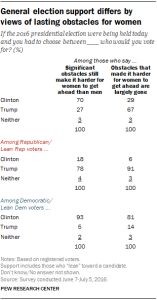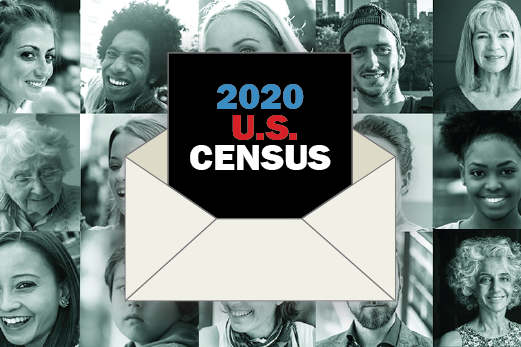

Anyone who has filed a U.S. tax return, applied for a Social Security number or signed up for Medicare has given personal data to the government. So when the Census Bureau counts the American public, can it use the information that other federal agencies have already collected?
[callout align=”alignright”]

Try our email course on the U.S. census
Learn about why and how the U.S. census is conducted through five short lessons delivered to your inbox every other day. Sign up now!
The Census Bureau would very much like to do that. For the 2020 census, the bureau is testing whether government records could supply basic details about 6 million hard-to-count households, and be used to identify another 6 million vacant homes so door-to-door enumerators can save time by skipping them during follow-up on homes that did not send in census forms. The agency also is researching whether such records could be a substitute for some questions, especially about sensitive topics such as income, on the American Community Survey, which replaced the census long form in 2010.
The Census Bureau has been studying how to make use of well-vetted government records for decades, and today does so in a limited way – to count overseas military and federal employees in the decennial census, for example. But the agency now says it is serious about doing more, and acting quickly. One reason is that it is under pressure from Congress to hold down costs for the 2020 census. Another is that it has promised to look into dropping questions from the American Community Survey that have provoked complaints from respondents.
“We’ve been talking about it for a long time as the next big frontier, and now we have no choice,” said Joseph Salvo, a New York City planning official who co-chaired a recent National Academies of Sciences workshop that included a session on how the American Community Survey might use other government or commercial data to supplement its data collection.
The potential gains are appealing, in the form of lower costs for administering both the decennial census and surveys, improved data quality and more efficient operations. Still, some experts ask whether government data, sometimes called administrative records, are accurate and complete enough to do the job of a full census, especially in covering hard-to-count groups such as squatters, unauthorized immigrants or young people who move frequently. For example, data kept by different agencies about the same individual – such as their race or Hispanic origin, for example – do not always match, census research has found. In some cases, the bureau would have to negotiate legal agreements with other government agencies to use their data.
Another potential obstacle: Will Americans, only about a third of whom are confident their government data will remain private and secure, accept the idea of increased sharing of their personal information across different agencies?
Saving money in the census?
For the 2020 census, which is projected to cost $12.5 billion overall, bureau officials say they hope to save $1.4 billion on the most expensive part of the count, following up with the projected 56 million households that don’t return their questionnaires. Postal Service records and possibly other data could identify up to 6 million of these households as vacant. In addition, after knocking on each of the remaining doors at least once, the agency hopes government records can supply basic data about the number, sex, age, race and Hispanic origin of people living in another 6 million or so of these households that don’t respond. Data sources could include tax returns or other tax documents, as well as Social Security and Medicare records.
Beyond these uses, the bureau hopes that government records can help in compiling its initial list of 2020 census addresses, improving its count of people living in prisons, military bases or other group quarters, and validating addresses of people who file census forms online without using the official code they received with their questionnaire. Records also can be used for quality control and evaluation purposes.
The bureau has been refining its techniques in test censuses in Philadelphia, the Washington, D.C., area and Arizona, and has other experiments planned. Final decisions on whether to use government data sources won’t be made until at least 2018.
Dropping controversial survey questions?
The Census Bureau also is looking at using other data sources to replace up to 20 question topics currently on the American Community Survey questionnaire, which is sent to 3.5 million households each year. Among them are questions deemed sensitive or difficult to answer, such as the amounts of wages, Social Security income, pensions and real estate taxes.
Some results are promising. A recent Census Bureau working paper found that survey respondents’ statements about whether they had certain types of income usually agreed with Internal Revenue Service records, and the amounts correspond well. For example, in 2011, the average wage in the survey was $42,300 and in IRS records was $41,300.
But the paper noted that IRS records could not substitute for all the survey income questions, because they do not include Veterans Affairs payments, child support or alimony. In addition, IRS data are based on the previous calendar year, whereas the monthly survey asks about the previous 12 months, so amounts may not match.
The bureau is continuing to research each topic and plans to delve further into whether state and local data sources can be useful to the American Community Survey. The bureau’s schedule calls for releasing recommendations about alternate data sources for the survey this year and in 2017.
Making use of administrative records is not something unique to the U.S. The Canadian government announced last year that income questions would not be included on 2016 census forms, scheduled to be sent in May. Instead, for the first time, Statistics Canada will get the information from government tax and benefits records.
Canadian government officials said dropping the income questions would make the census easier for respondents, and also would improve the quality of income data. Research has found a widening gap between what people say in surveys and the income reported to the government.
It’s taken a decade for the change to be fully instituted. The Canadian census only asks about income on the long form sent to a sample of households. In 2006, respondents were offered a choice: Fill in their own income information, or let the government use their tax and benefit records to provide that information. More than 82% agreed to let their tax and benefit records be used. The income question was part of a voluntary household survey in 2011, with the same option. This year the census is mandatory again, but with no income question.
